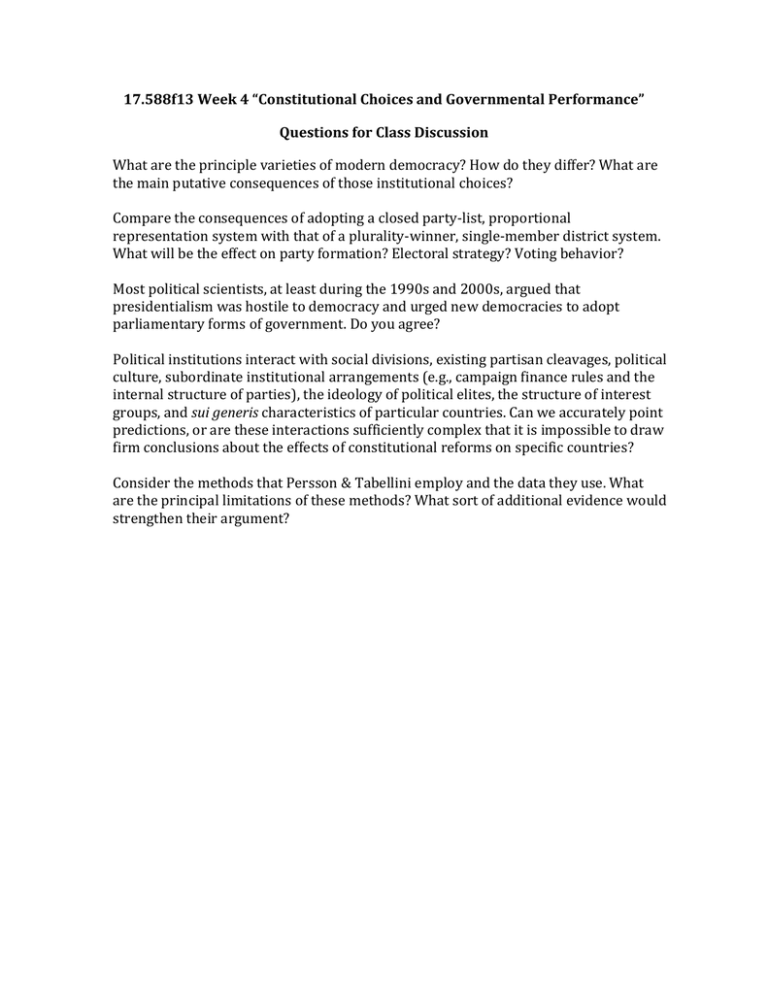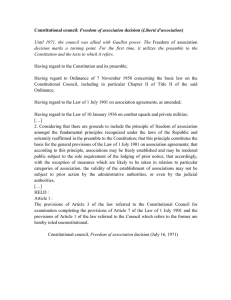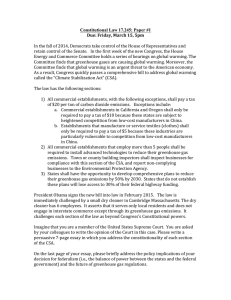17.588f13 Week 4 “Constitutional Choices and Governmental Performance”
advertisement

17.588f13 Week 4 “Constitutional Choices and Governmental Performance” Questions for Class Discussion What are the principle varieties of modern democracy? How do they differ? What are the main putative consequences of those institutional choices? Compare the consequences of adopting a closed party-list, proportional representation system with that of a plurality-winner, single-member district system. What will be the effect on party formation? Electoral strategy? Voting behavior? Most political scientists, at least during the 1990s and 2000s, argued that presidentialism was hostile to democracy and urged new democracies to adopt parliamentary forms of government. Do you agree? Political institutions interact with social divisions, existing partisan cleavages, political culture, subordinate institutional arrangements (e.g., campaign finance rules and the internal structure of parties), the ideology of political elites, the structure of interest groups, and sui generis characteristics of particular countries. Can we accurately point predictions, or are these interactions sufficiently complex that it is impossible to draw firm conclusions about the effects of constitutional reforms on specific countries? Consider the methods that Persson & Tabellini employ and the data they use. What are the principal limitations of these methods? What sort of additional evidence would strengthen their argument? MIT OpenCourseWare http://ocw.mit.edu 17.588 Field Seminar in Comparative Politics Fall 2013 For information about citing these materials or our Terms of Use, visit: http://ocw.mit.edu/terms.





